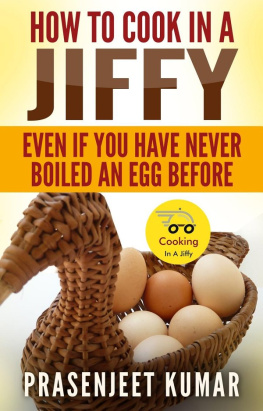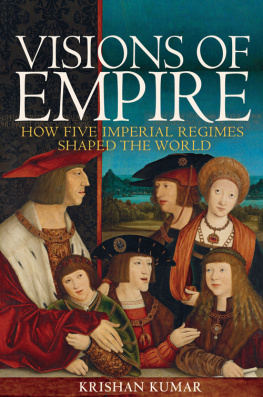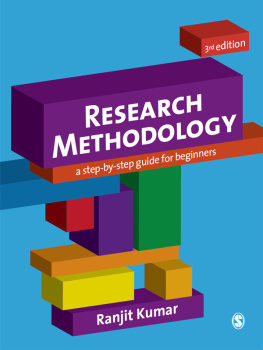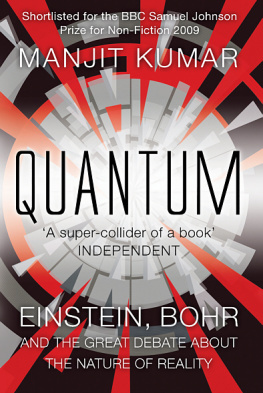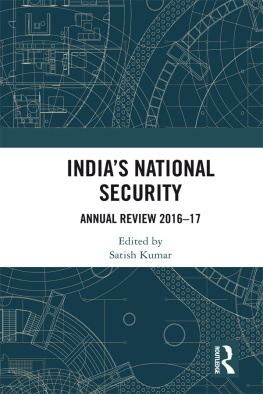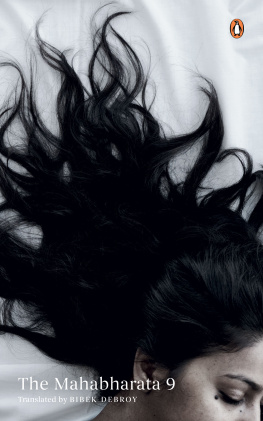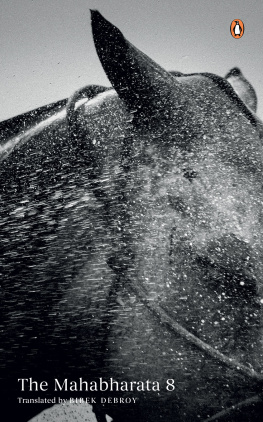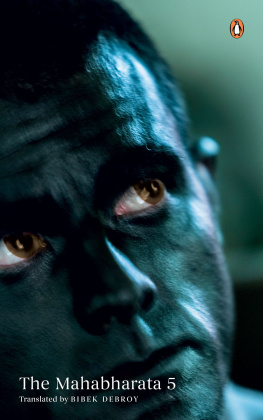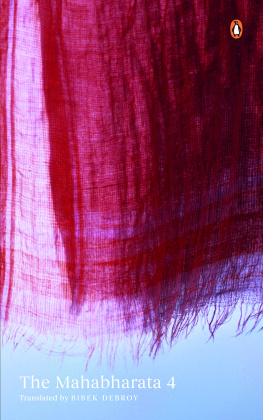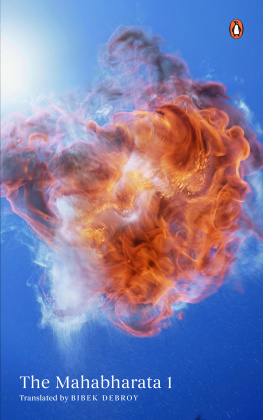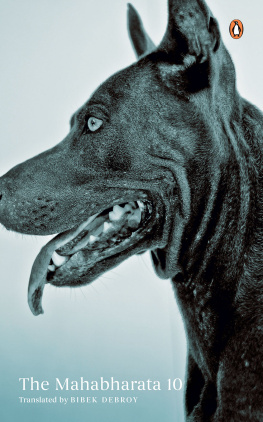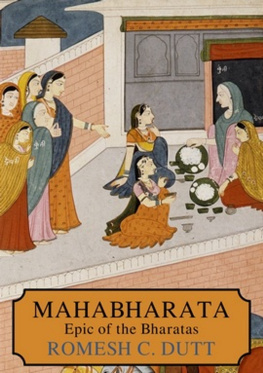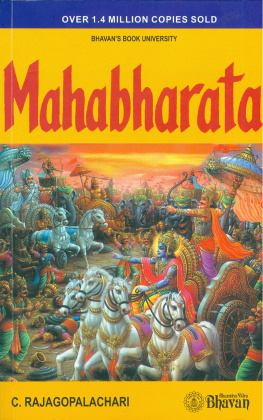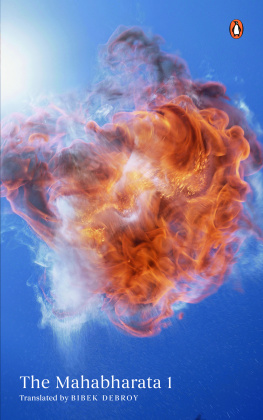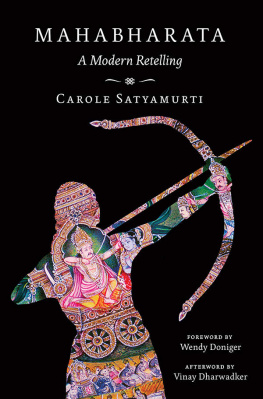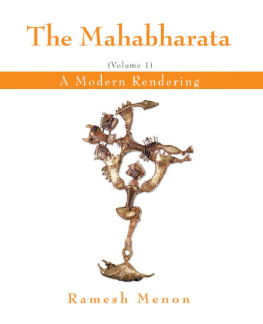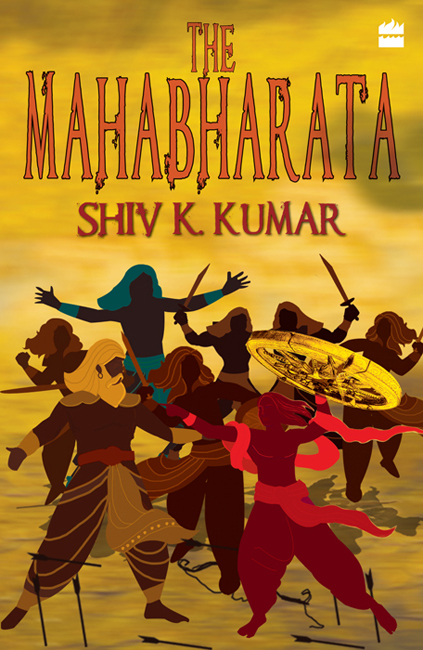
The Mahabharata
SHIV K. KUMAR

HarperCollins Publishers India
To
Manish, my son,
whose fascination with the Mahabharata has not waned
and
Shehan, my six-year-old grandson,
who will grow up to write his own version of the epic
Contents
I sometimes wonder if that is what Krishna meant. Among other thingsor one way of putting the same thing: That the future is a faded song, a Royal Rose or a lavender spray of wistful regret...
T.S. Eliot, Dry Salvages
Facing me, on my desk, is
an artists vision, chiselled in sandalwood.
Is it because fragrance heightens perception?
Lord Krishnas left index finger is admonishing
Arjuna, while his right hand reins in
five fire-breathing horses,
each a sense incensed to break into
wanton license. In my minds ear,
I hear Arjuna saying:
I see arrayed in front of me, O Lord,
my relatives, teachers and friends
limbs of my own bodymy chest, head,
eyes, arms and shoulders. Wouldnt killing
them be self-destruction?
Your prime problems, Arjuna, are
despondency and self-delusion. When I am
immanent in both the axe and the trees
bare trunk, then who is the wood
cutter? Shedding tears over the dead
body is like adding their
brine to the seas
a mad mans cry in the market-place
over the suns demise.
The body is like a fort, with many exits.
When it crumbles under its own weight,
the commander within flies away
from the rear gate to set up another fort
elsewhere. He is never killed.
Flame cannot turn him to ashes,
nor water dampen his resilience.
He was there to see the first sunrise
and he will survive to see this planet lapse
into nothingness.
Still, O Lord, those faces in front of me,
all reflections of my own self
the suns splinters on agitated waters.
There you go again, Arjuna, deep into
your ignorance. Each face arouses
emotionsof revulsion or joy. A slimy
reaction to a bat hanging by its claws
under the ceiling, a lizard flicking its tongue
at an insect on the wall, or a cobra dragging
its length across a faded lawn. Or, an upsurge
of joy at seeing a sunflower, a rose or
a water-lily. All these objects have faces too,
like those of humans. They all trap the mind
into emotions, high or low:
Let me now show you some faces from the landscape
of your past, as I open my heart to you
literally, not figuratively.
Look here at those faces of your ancestors,
blurred in the primordial mist. You cannot
recognise any of them, nor do they know
who you are. Because time is a granite wall
through which you cannot see. Yet you
have already started to grieve over those
pitted against you. As if you are yourself their doom,
when you too will descend into the dark cellar
when the moment arrives. Here I am telling
you all this under the canopy of the present moment,
with the horses neighing, elephants trumpeting
and chariots wheeling around.
But theres still the future, O Lord.
Can an act be divorced from the thought
of recompense?
Thats mans ultimate frailty, O Warrior,
to know what lies beyond the horizon,
to know the end even before the beginning,
to know if a seed would sprout
into a leaf, and a leaf into a bud
if a traveller would reach his destination
before sunset. No, youd never know
what lies ahead because I hold this card
close to my chest. Or, to put it differently,
the future lies in a sealed capsule, under the oceans
bed, inaccessible to man. But I know it all,
for I do the choosingthe epicentre
of the next quake, the point of shipwreck
on the oceans surface, or the arrow that
would transfix the fishs eye in a water bowl.
I choose the sex in the womb,
the hurricanes direction and velocity.
If man were to know his future,
wouldnt he play god?
Look at the game he plays
what the stars foretell!
As if even the stars know when therell
be a collision in the sky
and a meteor go off course.
And yet the fortune-teller in the market
place beguiles his customers
with his play of cards. His tutored parrot
always picks the right one for success.
So why should your brow be wrinkled
to know the battles end?
Why let nightmares vex your sleep?
Act in the present, banishing all thoughts
of the morrow. Like the sparrow that picks
up a grain from the ground, without any
thought of granary. And in a season of drought,
it would peck into a cactus blade for milk.
Now I seejai^tpor opening within me, O Lord.
Still, I feel a lingering turbulence in my mind,
like lava simmering under the earths surface.
Is there a permanent haven of peace?
Indeed Arjuna, if youd transcend all contraries.
Imagine yourself both the chess and the chess
playerwatch each move from both sides,
simultaneously. Dont forget that a scorpion
needs the same caress as a lapdog
that a pythons skin is as plushy as a velvet
bedspread, that it is possible for a stag
to drink with a lion from the same pool,
in a deep forest. If you could spend a night
with a whore, and return home
unblemished, your eye would sparkle
like a diamond. And diamonds are forever,
you know. Such an enlightened mind is like
an eagle, poised on its wings in the sky,
surveying the earth like a god. It is an axis
that moves the wheel but itself moves not.
A constant among variables.
No more questioning, O Lord.
I can now read your message between the folds
of a rose-bud, unravel the mystery of the mole
on the moons face, walk through a dense
forest at night, without the pole stars taper.
Then pick up your bow and arrow, O Warrior,
and fight to set the crooked straight.
Your destiny was etched on your palm
at birth. Just as it was preordained
that Id be with you, like the musk
in a deers navela whisper in the air
that leads a lone traveller through a wilderness.
Maybe, I took the human form solely to commune
with you, as we both find ourselves here
between the two forces, good and evil.
A mentor too realizes himself
through his disciple, like the Creator
seeing his image in his creation.
T he Mahabharata is the oldest epic in world history, except the Ramayana which was composed a few centuries earlier. More ingeniously conceived than the Iliad and the Odyssey, the Mahabharata stands out as a marvel of creative imagination. Composed by sage Vedavyasa, about 2000 bc, it depicts almost every conceivable human emotion love and hate, forgiveness and revenge, truthfulness and falsehood, celibacy and promiscuity, commitment and betrayal, magnanimity and greed. But what is most remarkable about Vyasas genius is his uncompromising integrity in presenting the baing complexities of human existence its contradictions and incoherences. Thus, while Yudhishthira is portrayed as Dharmaputra, the Prince of Righteousness, he lapses into uttering a lie to have Drona slain. Similarly, Bheeshma, who towers high above everybody else as the custodian of culture and justice, remains a mute spectator at Draupadis disrobing in an open assembly. Nor is Krishna, the divine charioteer of Arjuna, entirely blemishless, for he often resorts to devious strategies to achieve his objectives. Vyasa seems to suggest that there is no such thing as absolute truth since a stainless human being is a mirage.
Although the Mahabharata is implanted in the Indian psyche, it has also fascinated readers all over the world. No wonder this epic has been translated into every major language of the world.
Next page

